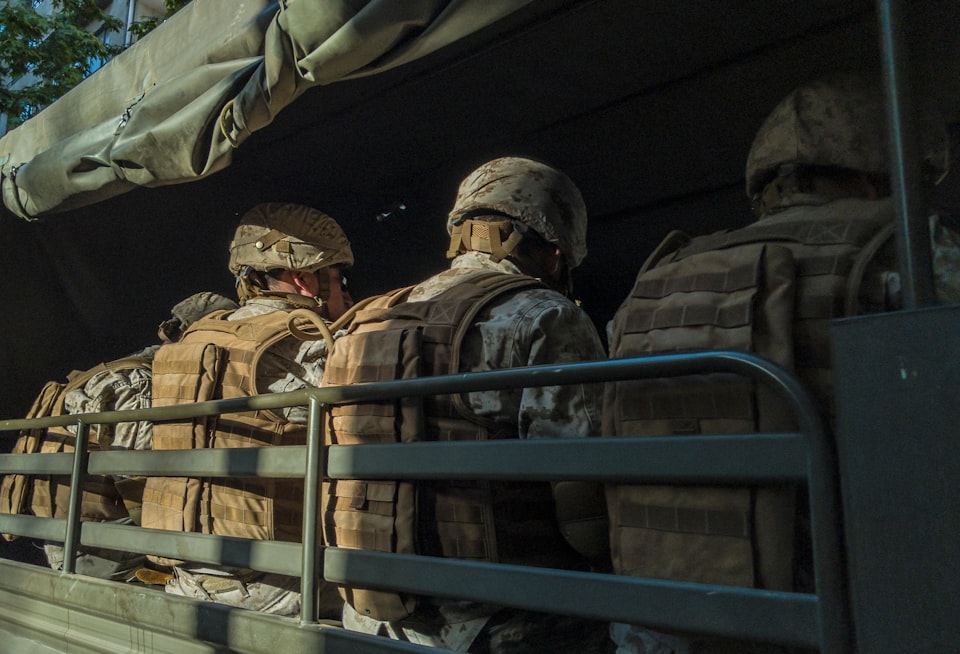The Core Values of the Army

Studying the Army’s core values is a great way to gain an understanding of what it means to be a modern-day soldier.
While there are many armies around the world, in this article I will focus on the United States Army. The core values of the U.S. Army, as we will learn below, are first taught to incoming soldiers during Basic Combat Training (BCT). From this point onward, U.S. Army soldiers are expected to live up to the Army’s core values in all that they do, regardless of whether or not they’re in uniform.
While the U.S. Air Force and U.S. Navy embrace just three core values apiece, there are seven core values of the U.S. Army. Read on to uncover them all.
What are the Core Values of the Army?
Founded June 14, 1775 as the Continental Army, the U.S. Army is the oldest and most senior branch of the United States Armed Forces. The seven core values of the Army are:
- Loyalty
- Duty
- Respect
- Selfless service
- Honor
- Integrity
- Personal courage
Let’s take a look at each of these values in full:
1) Loyalty
According to the U.S. Army’s website, the first of the Army’s core values is around putting loyalty above all else:
Bear true faith and allegiance to the U.S. Constitution, the Army, your unit and other Soldiers. Bearing true faith and allegiance is a matter of believing in and devoting yourself to something or someone. A loyal Soldier is one who supports the leadership and stands up for fellow Soldiers. By wearing the uniform of the U.S. Army you are expressing your loyalty. And by doing your share, you show your loyalty to your unit.
In my article on character traits I highlighted loyalty as a key positive character trait. When you are loyal you remain faithful to those you pledge your loyalty to, including your spouse, your country, your church, and even your local sports team.
2) Duty
The second value focuses on duty, fulfilling your obligations to your fellow soldiers and country, and working as part of a team:
Fulfill your obligations. Doing your duty means more than carrying out your assigned tasks. Duty means being able to accomplish tasks as part of a team. The work of the U.S. Army is a complex combination of missions, tasks and responsibilities — all in constant motion. Our work entails building one assignment onto another. You fulfill your obligations as a part of your unit every time you resist the temptation to take “shortcuts” that might undermine the integrity of the final product.
Duty is one of the Army’s core values because it highlights a soldier’s responsibility to their unit. The safety and security of your fellow soldiers is on your back; just as your safety and security is on theirs.
3) Respect
The third value focuses on respect: In all that you do, “treat others with dignity and respect while expecting others to do the same.”
Treat people as they should be treated. Respect is what allows us to appreciate the best in other people. Respect is trusting that all people have done their jobs and fulfilled their duty. And self-respect is a vital ingredient with the Army value of respect, which results from knowing you have put forth your best effort. The Army is one team and each of us has something to contribute.
When you are respectful you listen when someone is speaking to you. You pay deference to your elders (or in the case of the Army, your commanding officer). And you give others your attention—your full attention—at all times.
4) Selfless Service
The fourth value focuses on selfless service, and putting the welfare of all others before your own:
Put the welfare of the nation, the Army and your subordinates before your own. Selfless service is larger than just one person. In serving your country, you are doing your duty loyally without thought of recognition or gain. The basic building block of selfless service is the commitment of each team member to go a little further, endure a little longer, and look a little closer to see how he or she can add to the effort.
Selfless service is one of the core values of the Army because putting others before yourself is the only way an Army unit can survive. You may be feeling overworked, but this is of no consequence. Whether you’re serving your country or simply serving the needs of your family, doing so selflessly is the way forward.
5) Honor
The fifth value focuses on developing the habit of honor in your work; of making honor a matter of course in your day-to-day life:
Live up to Army values. The nation’s highest military award is The Medal of Honor. This award goes to Soldiers who make honor a matter of daily living — Soldiers who develop the habit of being honorable, and solidify that habit with every value choice they make. Honor is a matter of carrying out, acting, and living the values of respect, duty, loyalty, selfless service, integrity and personal courage in everything you do.
It’s impossible to be a military man or woman without having this sense of honor instilled in you early in your career. This may mean that you have to develop a thick skin when it comes to what you will or won’t be provoked by, but when honor is the goal, the means of getting there is secondary.
6) Integrity
The sixth value focuses on integrity; that is, doing what is right, legally and morally, at all times, and adhering to moral principles:
Do what’s right, legally and morally. Integrity is a quality you develop by adhering to moral principles. It requires that you do and say nothing that deceives others. As your integrity grows, so does the trust others place in you. The more choices you make based on integrity, the more this highly prized value will affect your relationships with family and friends, and, finally, the fundamental acceptance of yourself.
Also one of the core values of the Air Force, integrity is a key military value because it focuses on your behavior above all else. As I noted in my article on character traits, if you have integrity you act the same in private as you do in public; you are complete and incorruptible.
7) Personal Courage
Finally, the seventh value focuses on personal courage; of risking your personal safety for the greater good of your unit as a whole:
Face fear, danger or adversity (physical or moral). Personal courage has long been associated with our Army. With physical courage, it is a matter of enduring physical duress and at times risking personal safety. Facing moral fear or adversity may be a long, slow process of continuing forward on the right path, especially if taking those actions is not popular with others. You can build your personal courage by daily standing up for and acting upon the things that you know are honorable.
Of all of the Army’s core values, this is the one that, to me at least, feels most transitional between civilian and military life. You can have personal courage in your civilian life, but to translate this to the Army, to use this courage to serve and protect your country, is something else altogether.
Studying the seven core values of the Army allows us to recognize the power of having core values not just in the military, but in our day-to-day, civilian lives.
If you’re interested in hearing more from me, be sure to subscribe to my free email newsletter, and if you enjoyed this article, please share it on social media, link to it from your website, or bookmark it so you can come back to it often. ∎




